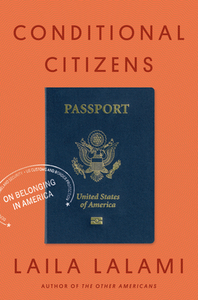Take a photo of a barcode or cover
challenging
informative
reflective
Laila Lalami is a wonderful author who clearly connects her experiences with systemic oppression. Her experiences as a Moroccan woman versus a Moroccan immigrant in the United States inform these essays, but she is also well-researched.
When I first read this collection in late 2020, it was at the tale end of the first Tr*mp presidency; back then, these essays gave me hope that we were capable of learning our lesson and doing better. Upon re-reading in 2025, that is no longer the case. Between simply reading a wider variety of abolitionist and social justice texts since 2020 and the political climate we're entering, this collection did not knock it out of the park the way it did back then. This is a strong collection, but I'd recommend it to someone who maybe hasn't read a ton on intersectional feminism or social issues (especially from an Arab and Muslim perspective).
When I first read this collection in late 2020, it was at the tale end of the first Tr*mp presidency; back then, these essays gave me hope that we were capable of learning our lesson and doing better. Upon re-reading in 2025, that is no longer the case. Between simply reading a wider variety of abolitionist and social justice texts since 2020 and the political climate we're entering, this collection did not knock it out of the park the way it did back then. This is a strong collection, but I'd recommend it to someone who maybe hasn't read a ton on intersectional feminism or social issues (especially from an Arab and Muslim perspective).
informative
reflective
fast-paced
informative
reflective
medium-paced
Very informative and well-written.
informative
reflective
hopeful
informative
reflective
challenging
informative
medium-paced
informative
medium-paced
I read this to see if it would work for a class I’m teaching on gender sexuality and politics. I think it’s a good introductory overview on issues of race, nation, and belonging written in an accessible and engaging style. I do wish the analysis was more intersectional. There is a chapter on gender but could have been more prominently interwoven throughout, especially since Lalami lives in the intersections of immigrant, Muslim, woman.
informative
reflective
So basically everyone that is not a white male is a conditional citizen? If this was limited to naturalized citizens, or just color, I could maybe get on board. But once you say the majority of citizens are conditional, I think we need a reframe. And that's not even to consider places like Spain that literally have two classes of citizens (naturalized and non) with different rights to pass on citizenship. That doesn't exist in the US.
I agree with all of her very maintream liberal positions on how race, gender, faith, etc are treated unfairly but this book says nothing new. It's an of-the-moment infuriation of Trump era politics that just doesn't hit the same in 2024.
I agree with all of her very maintream liberal positions on how race, gender, faith, etc are treated unfairly but this book says nothing new. It's an of-the-moment infuriation of Trump era politics that just doesn't hit the same in 2024.



